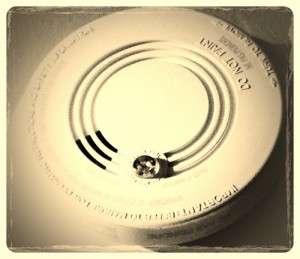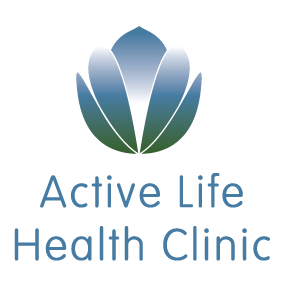 While pain means suffering and misery to most, it is also a sign that your body is alerting you to pay attention! If your house smoke alarm starts beeping, do you turn it off without addressing the cause of the alarm–the fire? Of course not! Yet many people try to cover up pain by taking drugs or simply ignoring it. While this may temporarily dull the pain, your body will continue to remind you that something is still wrong, and the pain can become more intense and chronic.
It is important to treat pain as pain can slow recovery, interfere with sleep and eating, and worsen fear, anxiety, frustration, and depression. However, “quick fix” drugs have negative possibilities and they often do not treat chronic pain effectively over the long-term.
While pain means suffering and misery to most, it is also a sign that your body is alerting you to pay attention! If your house smoke alarm starts beeping, do you turn it off without addressing the cause of the alarm–the fire? Of course not! Yet many people try to cover up pain by taking drugs or simply ignoring it. While this may temporarily dull the pain, your body will continue to remind you that something is still wrong, and the pain can become more intense and chronic.
It is important to treat pain as pain can slow recovery, interfere with sleep and eating, and worsen fear, anxiety, frustration, and depression. However, “quick fix” drugs have negative possibilities and they often do not treat chronic pain effectively over the long-term.
“Today, adverse drug reactions and drug interactions are directly responsible for thousands of deaths annually and for more than 20 per cent of all hospitalizations for adults over the age of 65.”
— Statistics Canada, 1998
Since drugs do not take care of the source of the problem and they can be associated with many side effects, what can you do?
Traditional Chinese Medicine can address both the branch (the symptom) as well as the root (the cause) of the pain. Acupuncture is a natural, time-tested, safe, and effective way to treat pain. It is acknowledged by the World Health Organization (WHO), the National Institute of Health (NIH), the Arthritis Society, and many pain management centres and institutes.
Chinese herbs, supplements, and food cures can be used alone or to support acupuncture treatments.
How does TCM treat pain?
TCM doctors have used acupuncture and herbs to treat warriors, martial artists, emperors and empresses, farmers, children, and more for over 5000 years. The basic premise is that pain is a result of a blockage of the normally smooth flow of Qi through the meridians. Qi is the energy that nourishes every cell, tissue, organ, and system in the body. When it is obstructed, it accumulates on one side of the blockage and is deficient on the other side. One of the symptoms associated with this problem is pain. This pathology can be compared to a hose through which flows water to feed a plant. If there is an obstruction in the hose, the water will not flow smoothly and the plant will wilt. And remember, if any area is damaged, tight, or restricted, it also does not receive proper blood flow, and that impedes full healing.
“If there is free flow, there is no pain; If there is no free flow, there is pain.” – Classical Chinese medical text, Nan-Ching, 2nd Century A.D.
Acupuncture
Acupuncture relieves pain by moving the Qi. While this is not understood at present by western science, medical research has shown acupuncture to be a safe and effective treatment method for pain. Acupuncture has been shown to stimulate the production of endorphins (chemicals that block pain), neutralize trigger points, relax muscles, and block the transmission of pain signals to the brain by stimulating competing nerves. One major benefit to acupuncture as a complementary therapy, is that it can be used safely with other therapies, including pharmaceutical drugs.
Herbal Remedies
Many herbs have been shown to be anti-inflammatory and pain-relieving. A TCM herbalist will choose herbs that move Qi and Blood to relieve pain, and also add herbs to treat the underlying imbalances.
Food Cures
Without proper nutrition our bodies do not heal well. In order to replace and repair damaged cells, specific nutrients need to be available. When they are not, recovery is impaired. In addition, as with the herbal remedies, some foods have medicinal properties, and food recommendations can be made to suit the individual.
What kinds of pain can TCM treat?
Both acute and chronic pain can benefit from TCM treatments.
Acute Pain
Acute pain begins suddenly, is short-term, and is usually the result of a specific injury. An example of acute pain is seen in someone who has just sprained his or her ankle. In the event of a recent injury, x-rays can be used to determine if there is a fracture, and ice is usually applied during the first 24 hours to relieve swelling. Acupuncture and/or herbs can be used to bring down the swelling, relieve pain, and speed healing. The earlier an injury is treated, the faster the recovery.
Chronic Pain
Chronic pain is generally defined as pain that lasts longer than three months. It can have significant psychological and emotional effects as it may limit a person’s ability to function well. Chronic pain occurs in about 11-54% (depending on age) of people, and a conventional search for treatment is unsuccessful for many, thus leading to frustration. Because TCM treats the source of the symptoms, as well as the pain itself, chronic pain is well-treated by TCM’s holistic system.
